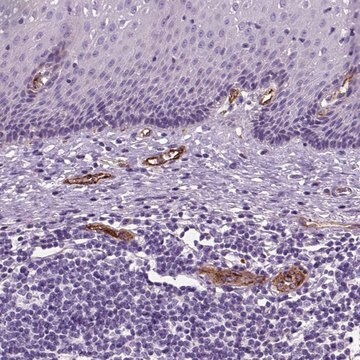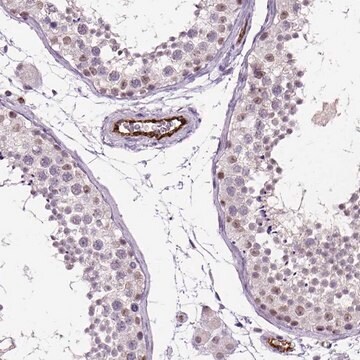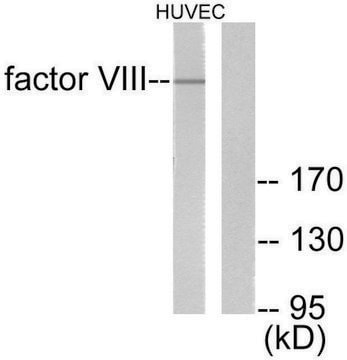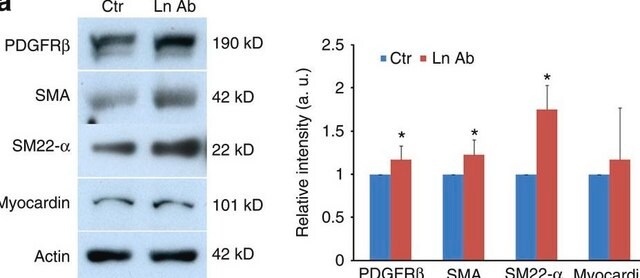F3520
Anti-von Willebrand Factor antibody produced in rabbit
IgG fraction of antiserum, buffered aqueous solution
Synonyme(s) :
Von Willebrand Factor Antibody, Von Willebrand Factor Antibody - Anti-von Willebrand Factor antibody produced in rabbit, Anti-Factor VIII-Related Antigen
About This Item
Produits recommandés
Source biologique
rabbit
Niveau de qualité
Conjugué
unconjugated
Forme d'anticorps
IgG fraction of antiserum
Type de produit anticorps
primary antibodies
Clone
polyclonal
Forme
buffered aqueous solution
Espèces réactives
human
Conditionnement
antibody small pack of 25 μL
Technique(s)
immunohistochemistry (formalin-fixed, paraffin-embedded sections): 1:1,000 using human tissue (Indirect Immunoperoxidase Labeling)
indirect immunofluorescence: 1:200 using formalin-fixed, paraffin-embedded sections of human tissue
Numéro d'accès UniProt
Conditions d'expédition
dry ice
Température de stockage
−20°C
Modification post-traductionnelle de la cible
unmodified
Informations sur le gène
human ... VWF(7450)
Description générale
Spécificité
Immunogène
Application
- western blot analysis and immunostaining
- immunocytochemistry
- immunohistochemistry
- indirect immunofluorescence
Actions biochimiques/physiologiques
Forme physique
Notes préparatoires
Clause de non-responsabilité
Vous ne trouvez pas le bon produit ?
Essayez notre Outil de sélection de produits.
Code de la classe de stockage
12 - Non Combustible Liquids
Classe de danger pour l'eau (WGK)
WGK 2
Point d'éclair (°F)
Not applicable
Point d'éclair (°C)
Not applicable
Certificats d'analyse (COA)
Recherchez un Certificats d'analyse (COA) en saisissant le numéro de lot du produit. Les numéros de lot figurent sur l'étiquette du produit après les mots "Lot" ou "Batch".
Déjà en possession de ce produit ?
Retrouvez la documentation relative aux produits que vous avez récemment achetés dans la Bibliothèque de documents.
Les clients ont également consulté
Notre équipe de scientifiques dispose d'une expérience dans tous les secteurs de la recherche, notamment en sciences de la vie, science des matériaux, synthèse chimique, chromatographie, analyse et dans de nombreux autres domaines..
Contacter notre Service technique











